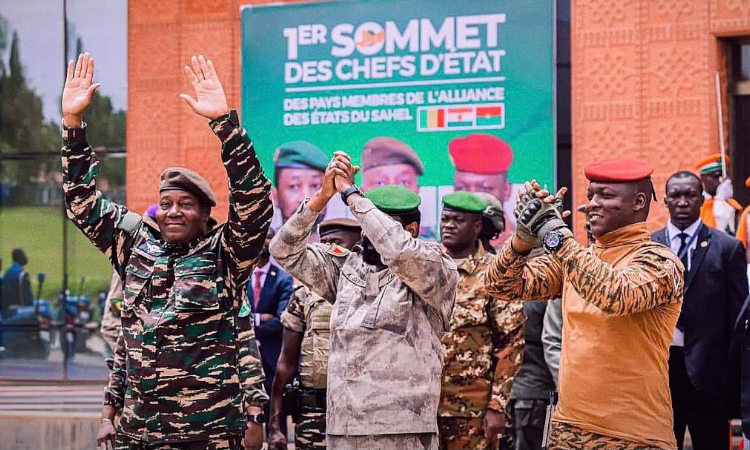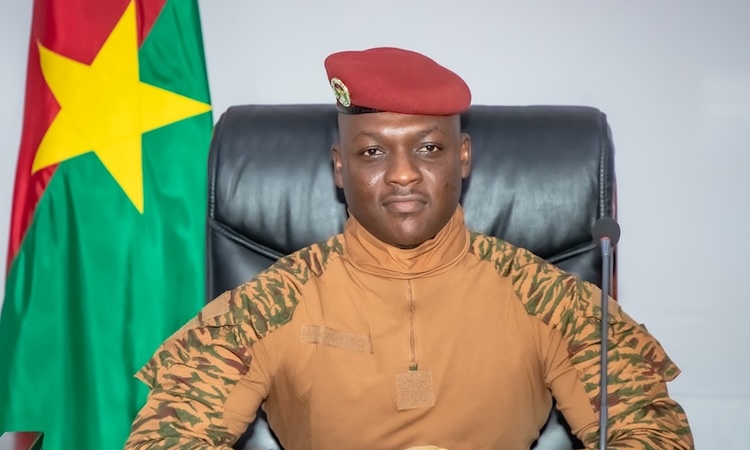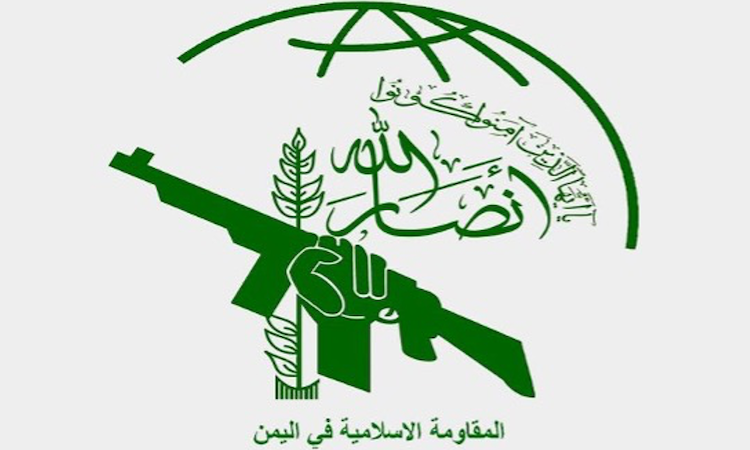When Burkina Faso’s latest president, Roch Kabore, was kicked out by an army coup in January, the event barely registered as news in the west. Isn’t that just what happens in Africa every so often?
After all, this coup was preceded by two earlier similar coups in the same eight-month period in the west African region. Doesn’t it show that these former French colonial subjects just are not ready for democracy? (Unlike the sophisticated French electorate who have just voted in a president who most people never wanted in the first place, thanks to clever tactical voting.)
It suits the racist neocolonial mindset to blame the instability of African governments on a supposedly general political immaturity or passivity of the masses – a view that conveniently lets French and US imperialist meddling off the hook, leaves out of account the reactionary and destabilising activities of the local comprador and feudal interests, and robs the masses of all historical agency. This way of looking at matters lends succour to the comforting illusion that history travels in a circle, that there is really nothing new under the sun and that the ‘third world’ is destined forever to serve the interests of imperialism – to the detriment of the world’s oppressed and exploited masses.
Something that vigorously challenged this myth, demonstrating that, given the necessary leadership, the masses can and will make their own history and take control of their lives, was the revolution that briefly swept Burkina Faso in the 1980s.
A revolutionary that brought new confidence to the Burkinabè masses
From 1983 to 1987, President Thomas Sankara led revolutionary struggle on all fronts, nationalising the country’s mineral resources; advancing projects to make the country self-sufficient in food and to reverse the desertification caused by deforestation; initiating mass health and literacy campaigns; fighting corruption and tracing the roots of that corruption back to French and US imperialism; and fighting for African unity, urging other countries to join Burkina Faso in denouncing IMF and World Bank loans.
In every speech he made or interview he gave, Sankara expressed an unbounded confidence in the ability and duty of the masses to take their future into their own hands. The reverse of demagogic, he was not afraid to call on the masses to tighten their belts if that was the sacrifice that had to be paid to get out of the IMF debt trap, and always made it clear that whatever social gains were to be had could only be achieved by mass collective efforts.
He did not flinch from doing battle with a petty-bourgeois teachers’ union that organised strikes against the government in cahoots with a simultaneous coup attempt against the Jerry Rawlings government in neighbouring Ghana. His popularity was not bought with cheap populism, but was founded on a consistent anti-imperialist understanding that confidently tapped into the latent energy of the Burkinabè peasant masses and the tiny proletariat.
Murder of Sankara and of Burkinabè socialism
Both French and US imperialism grew alarmed at the revolutionary example being set, and did what imperialists always do, scouting around for any cracks in the leadership that might be exploited. Both Paris and Washington were rumoured to be behind the cowardly assassination of Sankara on 15 October 1987, carried out by his own brother in arms, Blaise Compaoré.
Once this turncoat was in charge, he promptly pulled the plug on all Sankara’s progressive policies, cosied up to France and got the country back under World Bank and IMF control. Compaoré ruled on behalf of his masters for the next 27 years, before he himself was overthrown in 2014, giving way to a series of short-lived administrations ending with the presidency of the banker Roch Kabore, ousted by last January’s coup.
All the social contradictions that helped shape the revolution in the 1980s are still there, and some new ones too. Whilst the masses continue to suffer unemployment, poverty, malnutrition, illiteracy, they now also live under the shadow of jihadism. Where once the Burkinabè people had for a fleeting moment known what it was to hold and exercise a growing degree of control over their own lives, now parts of the country are effectively no-go areas, haunted by jihadis and bandits.
The Financial Times has suggested that what broke the Kabore presidency was a failure to deal with a “jihadist insurgency that has left thousands dead and millions displaced”, adding that “Al-Qaeda and Isis-linked groups have in just a few years taken over wide swaths of Burkina Faso.” (Burkina Faso’s president overthrown in military coup by Neil Munshi, Financial Times, 24 January 2022)
With youth unemployment at record highs, the lure of small-scale, labour-intensive informal gold mining (there are thousands of such ‘artisanal’ mines in the country) draws many into what is an increasingly hazardous profession.
Imperialist control of rich resources via jihadi proxies
Another Financial Times piece from 2021 noted: “Over the past two years, the violence has been increasingly concentrated on the country’s thousands of artisanal gold mines, where jihadis – keen for lucrative sources of funding – have perpetrated massacres, levied taxes on miners and taken full control of mining operations.”
By a United Nations estimate there are a million miners supporting an average of five dependents each, meaning that a quarter of Burkinabès rely on the industry to survive. Interpol seized 40,000 sticks of dynamite during an operation at land borders in Burkina Faso, Ivory Coast, Mali and Niger.
According to the International Crisis Group all the explosives were “intended for illegal gold mining, which constitutes a new source of financing, and even a recruiting ground, for armed terrorist groups in the Sahel”. (Instability in the Sahel: how a jihadi gold rush is fuelling violence in Africa by Neil Munshi, Financial Times, 27 June 2021)
The FT cited the judgement of a former CIA man, saying: “Neither its government nor its security forces are up to the enormous challenges the country faces and the population seems to be casting about for new solutions.” One place they could begin looking is their country’s own history.
Compaoré found guilty 34 years on
Hopefully some memories will be stirred by the announcement that on 6 April a “Burkinabè court has sentenced former President Blaise Compaoré to life imprisonment for the murder of his predecessor, the revered Thomas Sankara. The long-awaited verdict on Wednesday brought to close a six-month trial about the murder of Sankara, who was assassinated during a coup led by his friend and comrade-in-arms Compaoré on 15 October 1987.” (Life sentence for Burkinabè ex-leader Compaoré for Sankara murder, Al Jazeera, 6 April 2022)
Deutsche Well commented: “More than 34 years after Thomas Sankara’s assassination, a trial to establish the facts has taken place. For some, justice that has been delayed for decades is finally being served. Some 34 years after the killing of Burkina Faso’s former leader Thomas Sankara, closure over his untimely death that ended the revolutionary’s reign in 1987 appears to have begun.
“A survivor of the 1987 coup, Aloun Traore, commented that ‘They attacked our dream thinking they could kill him. Thirty-five years later, I realise that the Burkinabè dream holds water. This excites the whole continent, the lines are moving.
“‘Thomas has done useful work, his example is being followed. Our joy is that young people, future generations use it for better fights, so that we can make these so-called territories of misery and precariousness, territories of happiness and wellbeing.’” (What Thomas Sankara’s murder trial and verdict mean for Burkina Faso by Isaac Kaledzi, 7 April 2022)
Clearly, justice is very far from done and there is no ‘closure’. The traitor Compaoré remains holed up in Cote d’Ivoire evading justice. Much more importantly, the hidden hand of France and the USA in the coup remains concealed. But when a country has gone through a revolution, it is not so easy to unlearn the experience.
Neither the ousted banker-politician Kabore, nor any other imperialist stooge of his ilk, nor any would-be warlord will ever be able to deal with the jihadi threat, for the genesis and growth of which imperialism bears primary responsibility.
Nor will any miraculous transfer from rule by coup to rule by parliamentary democracy hope to reverse the further slide into corruption, banditry, jihad and nihilism.
The only way forward is to pick up the banner carried by Thomas Sankara and resume the anti-imperialist struggle. As Traore so eloquently put it: “We can make these so-called territories of misery and precariousness, territories of happiness and wellbeing.”















